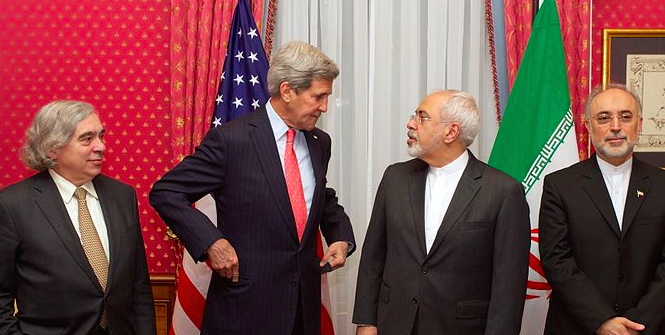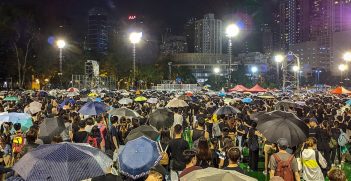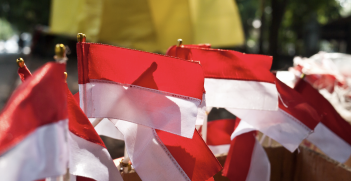Iran Nuclear Deal Could Unleash Regional Arms Race

Iran and world powers have been engaged in intense talks over Iran’s nuclear program and while many self-imposed deadlines have been missed and talks continue, a regional arms race could be the undesirable consequence of the much anticipated nuclear deal.
Iran and world powers have been engaged in intense talks over Iran’s nuclear program. They have missed many self-imposed deadlines but have kept going with this remarkable diplomatic initiative. This is a very significant process, not only because it could potentially normalise Iran’s relations with the international community, but also because it has highlighted the commitment of the United States and other great powers to persevere with the diplomatic option. It would have been too easy for Washington to pull out of talks once deadlines lapsed one after another. The fact that the Obama Administration did not give up on talks is testimony to an awareness that this is an historic opportunity to resolve a critical issue that has dogged successive US administrations.
Nuclear talks have generated a buzz in many Western capitals, with anticipation of sanctions relief for Iran, which would free its oil industry to access the global market. There are reports of international trade and diplomatic delegations to Tehran. Expectations of the flow-on benefits of a deal between Iran and P5+1 are high. Even Australia’s Foreign Minister Julie Bishop made a high profile visit to Iran in April this year – the first in 12 years.
But this optimism is not shared universally. In an ironic twist, it was revealed recently that Saudi Arabia and Israel have held secret meetings to discuss the on-going talks and share ideas on how to respond to them. Israel’s opposition to the deal is widely documented. Prime Minister Benjamin Netanyahu has taken every opportunity to lobby the West against the deal. He even offered a “dummies guide” to Iran’s capacity to build a nuclear bomb at the United Nations General Assembly in 2012. But for Saudi Arabia to reach out to Israel, while it refuses to recognise it and maintains no diplomatic relations with Tel Aviv, is immensely significant. It highlights the depth of unease in Riyadh and the urgency of the risk assessment for the Saudi regime.
For Saudi Arabia and many Arab Sheikhdoms in the Persian Gulf, sanctions relief for Iran would unchain the beast. Saudi Arabia has been critical of Iran’s regional role for decades. Iran’s sponsorship of Hizbullah is seen as an expansionist attempt to spread Iran’s influence. Reports of a Hizbullah connection to the 2005 assassination of Rafiq Hariri, Lebanon’s former Prime Minister with strong links to Saudi Arabia, served to vindicate this perspective. Saudi Arabia has been critical of the post-Saddam government in Iraq for being too close to Iran, accusing Baghdad and Tehran of advancing a Shia agenda. Fears of a Shia Crescent were first raised by King Abdullah of Jordan in 2004 when he warned of a Shia bloc (Hizbullah, Syria, Iraq and Iran). The concept has gained greater currency in the wake of the civil war in Syria.
While the Bashar al-Assad regime is strictly secular, the Assad family springs from the Alawite community which is dubbed Shia by the predominantly Sunni leaders in the Arab world. The fact that Shia scholars in the Najaf and Qom (centres of Shia scholarship in Iraq and Iran) do not recognise the Alawite as Shia, makes no difference to this depiction. The Iran-Syria axis, therefore, is seen as a Shia plot to undermine regional security, and challenge Saudi interests.
This is at the heart of the Saudi opposition to the nuclear deal. If Iran can act so boldly in Syria and Iraq in the fight against the Islamic State of Iraq and Levant (ISIL) while suffering crippling economic sanctions, how would it act once freed of this straightjacket? In other words, sanctions are seen in Riyadh as a measure to keep Iran in check, irrespective of the nuclear issue.
While many Republican members of the US Congress share the Saudi perspective, the US administration has taken the view that, first, the sanctions regime on Iran was a direct response to its lack of cooperation with the International Atomic Energy Agency and reports of an illicit nuclear weapons program; and second, a successful re-integration of Iran into the global community is likely to have a moderating effect on Iran’s behaviour. In this perspective, keeping Iran under sanctions is not the natural order of things, but an emergency response to an emergency situation.
The meteoric rise of ISIL has introduced another factor into the mix of regional volatility. In an ironic twist, Iran and the United States find themselves on the same side of the war on ISIL. While neither side is prepared to acknowledge their shared interest, regional leaders are not blind. The Saudi leadership is watching this congruence of US-Iran interests with deep concern, for it has far-reaching implications for Saudi security. Can Riyadh continue to rely on the promise of security from Washington? Will Washington come to Saudi aid in case of conflict with Iran? How reliable is the United States as the guarantor of Saudi security? These questions are taken very seriously in Riyadh. Reports of major Saudi investments in military hardware to bolster its defence force point to the fact that Riyadh is longer taking US support for granted.
The nuclear talks between Iran and P5+1 promises to normalise Iran’s relations with the international community. But it is seen as heightening the risk of regional instability by Saudi Arabia and its allies in the Persian Gulf. A regional arms race could be the undesirable consequence of the much anticipated nuclear deal.
Professor Shahram Akbarzadeh is ARC Future Fellow at Alfred Deakin Institute for Citizenship and Globalisation (Deakin University), and co-Convenor of the international conference on the Geo-Politics of the Middle East (28-29 Oct 2015). This article can be republished with attribution under a Creative Commons Licence.





